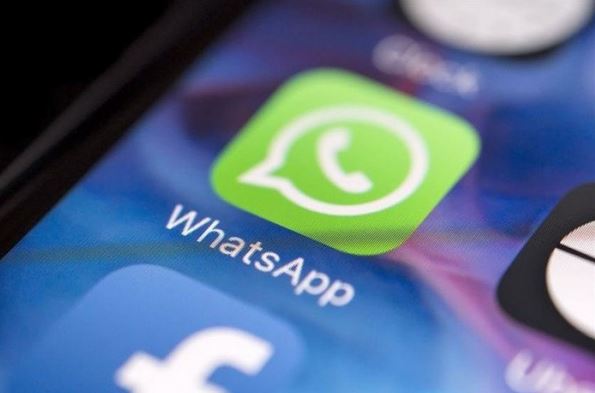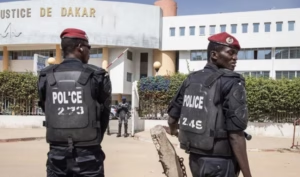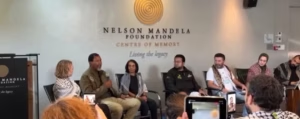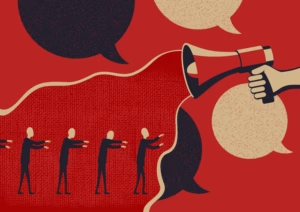A WhatsApp channel, which has amassed over 32,000 followers, is raising alarm after sharing videos depicting violent clashes between children, including footage of a child collapsing after being attacked.
The channel features teenagers uploading videos of various fights, often accompanied by commentary on the outcomes. The group operates under a slogan that states:
“Peace was never an option.”
Sandy Schuter, Chairperson of the Strandfontein Community Police Forum (CPF), expressed deep concern after coming across the channel earlier this week.
“I stumbled upon a disturbing WhatsApp channel which features videos of school fights. I was appalled, heartbroken, and outraged by the content.
She went on to highlight the worrying trend of violent confrontations spreading across schools, taking place both within school premises and beyond.
“What is equally disturbing is that this trend of violence is spreading across schools, with fights taking place both on and off school grounds.
Adding to the concern is the active participation of students who are not only engaging in these fights but also cheering on, recording, and widely sharing the incidents online.
“The fact that other students are cheering on, recording, and sharing these incidents on social media, including a channel with over 30k followers, is absolutely humiliating.”
One of the latest videos shared on the channel shows a Cape Town student collapsing after being choked by a fellow learner.
In the 30-second clip, the aggressor is seen seizing the victim by the neck. The student appears to struggle for air, raising his hand in distress before collapsing once released.
Western Cape Education Department (WCED) spokesperson Bronagh Hammond confirmed that the incident occurred at a Cape Town school. However, she clarified that the department would not disclose the name of the school to protect the affected student.
“The WCED has been made aware of the disturbing video that was distributed on a social media platform. The incident occurred on 23 January before the start of the school day. The school immediately took steps to address the issue. A disciplinary process was held.
Efforts are underway to provide emotional and psychological support to those involved.
“The two learners are receiving counselling support and behavioural interventions are planned.”
The WCED has also acknowledged the existence of the WhatsApp channel and has taken steps to address the issue.
“The WCED has been made aware of a WhatsApp chat group showing videos of learners fighting. This is without their permission or consent.
Hammond stated that the department has formally lodged a complaint regarding the channel’s activities.
“The WCED has written to the Information Regulator in terms of a complaint and the non-adherence to POPIA. We have also reported the matter to the social media platform.”
Hammond urged the public to report such content and avoid sharing violent images or videos, as doing so contributes to the ongoing distress of victims.
“Reposting images or distributing them further makes one part of the indecent act.
She further emphasised the impact that continued online exposure has on victims, urging parents to discuss responsible digital behaviour with their children.
“The continued humiliation of a victim on social media perpetuates the hurt and pain caused. Again, parents are advised to have conversations with their children on positive values, showing kindness and empathy towards those in need, as well as the dangers of social media.”
The growing trend of school violence being glorified and shared online has sparked concern among educators, parents, and community leaders.
Global Regulations on Social Media Access for Minors
Governments worldwide are implementing stricter regulations to control minors’ access to social media. From outright bans to parental consent requirements, here is a look at how different countries are approaching the issue.
Australia
A new law mandates that major tech platforms, including Instagram, Facebook (owned by Meta), and TikTok, must prevent minors from logging in or face fines of up to A$49.5 million ($32 million). A trial phase for enforcement methods will begin in January, with the full ban set to take effect in a year.
Norway
The Norwegian government has proposed increasing the minimum age at which children can consent to social media terms from 13 to 15 years. However, parents would still have the authority to grant permission for children under this threshold.
European Union Legislation
Under EU regulations, parental consent is required for the processing of personal data for children under 16. However, individual member states have the flexibility to lower this requirement to 13 years.
France
In 2023, France introduced a law requiring social media platforms to obtain parental consent before allowing minors under 15 to create accounts. Despite this, technical hurdles have delayed its enforcement.
Additionally, in April, a panel commissioned by President Emmanuel Macron suggested stricter measures, including banning mobile phones for children under 11 and restricting internet-enabled devices for those under 13. However, it remains unclear when and how these recommendations will be implemented.
Germany
Minors between 13 and 16 in Germany are officially allowed to use social media only with parental consent. While there are no current plans to expand regulations, child protection advocates argue that enforcement measures remain inadequate and call for stricter implementation.
Belgium
Since 2018, Belgium has enforced a law requiring children to be at least 13 years old to open a social media account without parental permission.
Netherlands
Although the Netherlands does not have a specific law setting a minimum age for social media use, the government implemented a ban on mobile devices in classrooms starting January 2024. Exceptions are made for digital lessons, medical needs, and disabilities.
Italy
Italian law requires children under 14 to obtain parental consent when signing up for social media platforms. No consent is required for those aged 14 and above.
Should we do the same for South Africa?

















